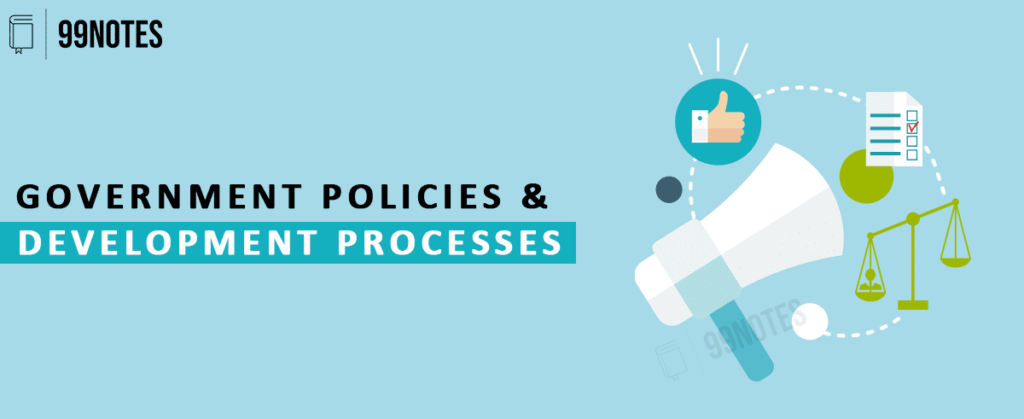
Government Policies & Development Processes Free UPSC Notes Download
More About Government Policies & Development Processes
Government policies and the development process are important topics in the Civil Services Exam in India, as they form the basis for understanding how a country functions and how it can be improved.
There are several key aspects to consider when discussing government policies and the development process:
- Economic policies: These policies relate to the management of a country’s economic resources and the distribution of wealth. Examples include fiscal policy (taxation and government spending), monetary policy (managing the supply and demand of money), trade policy (regulating imports and exports), and industrial policy (promoting the growth of certain industries).
- Social policies: These policies address issues related to the well-being of citizens, such as healthcare, education, housing, and social security.
- Environmental policies: These policies aim to protect the natural environment and address issues such as climate change, pollution, and resource conservation.
- Foreign policies: These policies outline a country’s stance on issues such as international relations, diplomacy, and defense.
- Infrastructure development: This refers to the construction and maintenance of physical structures and systems that support a country’s economic and social development. Examples include roads, railways, airports, ports, and telecommunications networks.
The development process refers to the steps taken by a government to improve the standard of living and overall well-being of its citizens.
This can involve implementing policies and projects in various sectors, such as healthcare, education, infrastructure, and the economy. The ultimate goal of the development process is to reduce poverty and inequality and promote sustainable growth.
There are many different approaches to development, and different countries may prioritize different aspects depending on their specific needs and circumstances. Some common strategies include:
- Investing in human capital: This involves improving access to education and healthcare, as these can have a lasting impact on a person’s ability to contribute to society and improve their own standard of living.
- Promoting economic growth: This can be achieved through policies such as trade liberalization, investment in infrastructure, and supportive tax and regulatory frameworks.
- Reducing inequality: This can involve implementing progressive taxation and social welfare programs to redistribute wealth and provide support to disadvantaged groups.
- Protecting the environment: Sustainability is increasingly being recognized as an important aspect of development. This can involve implementing policies to reduce pollution and conserve natural resources, as well as adapting to the impacts of climate change.
It is important to note that the development process is complex and multifaceted, and there is no one-size-fits-all solution.
Governments must consider a range of factors when designing and implementing policies and projects, and the success of these initiatives depends on a variety of factors, including political will, the effectiveness of implementation, and the willingness of citizens to participate and cooperate.

